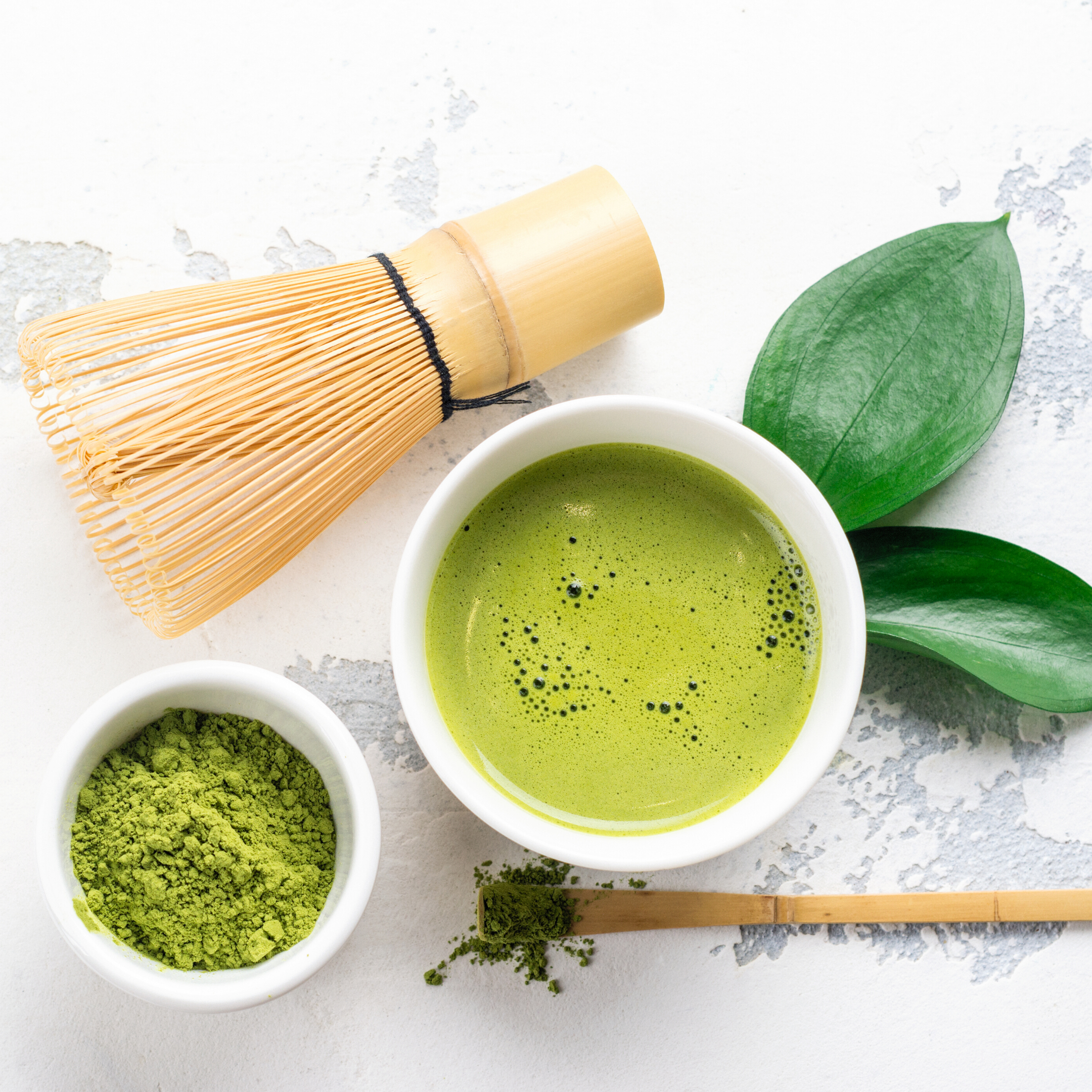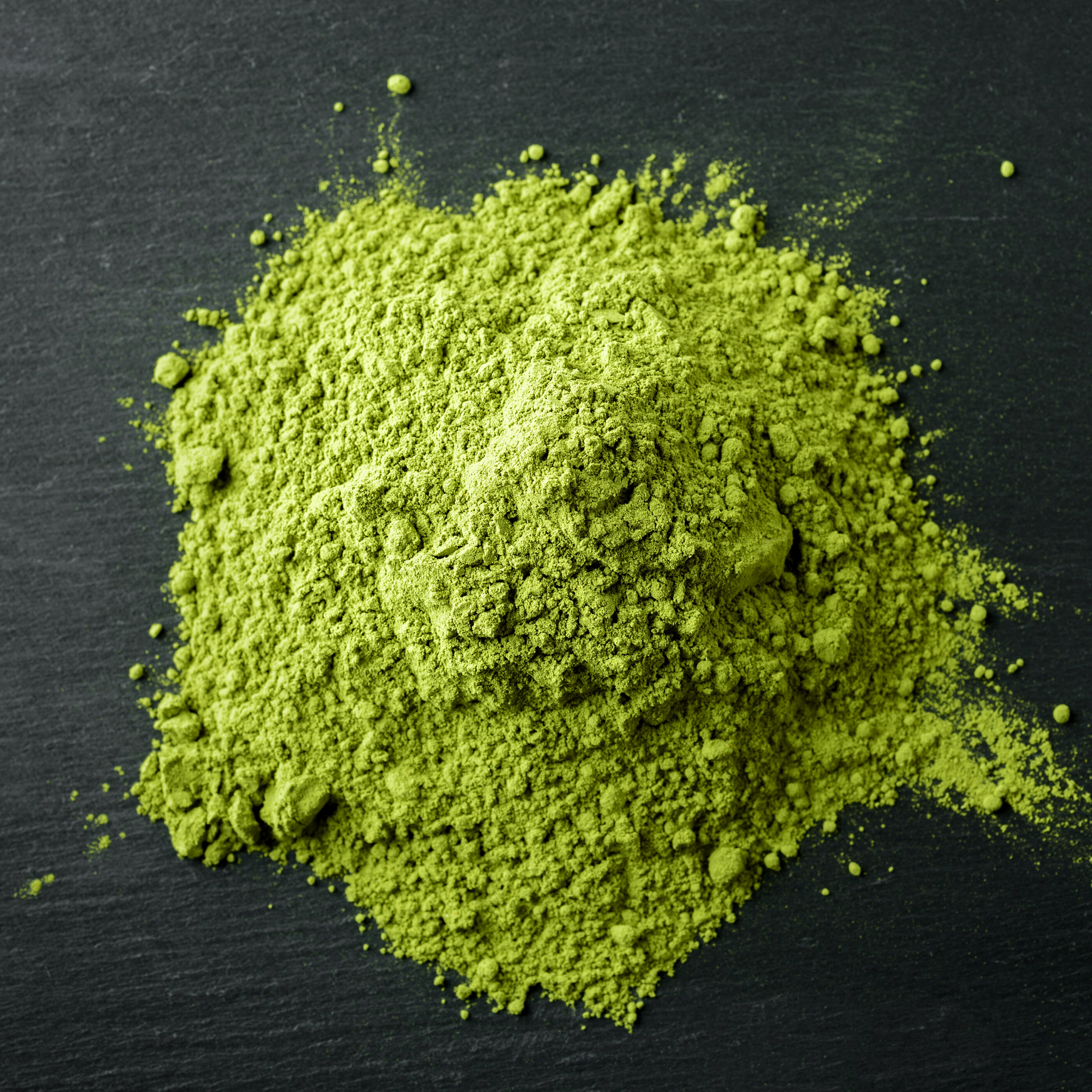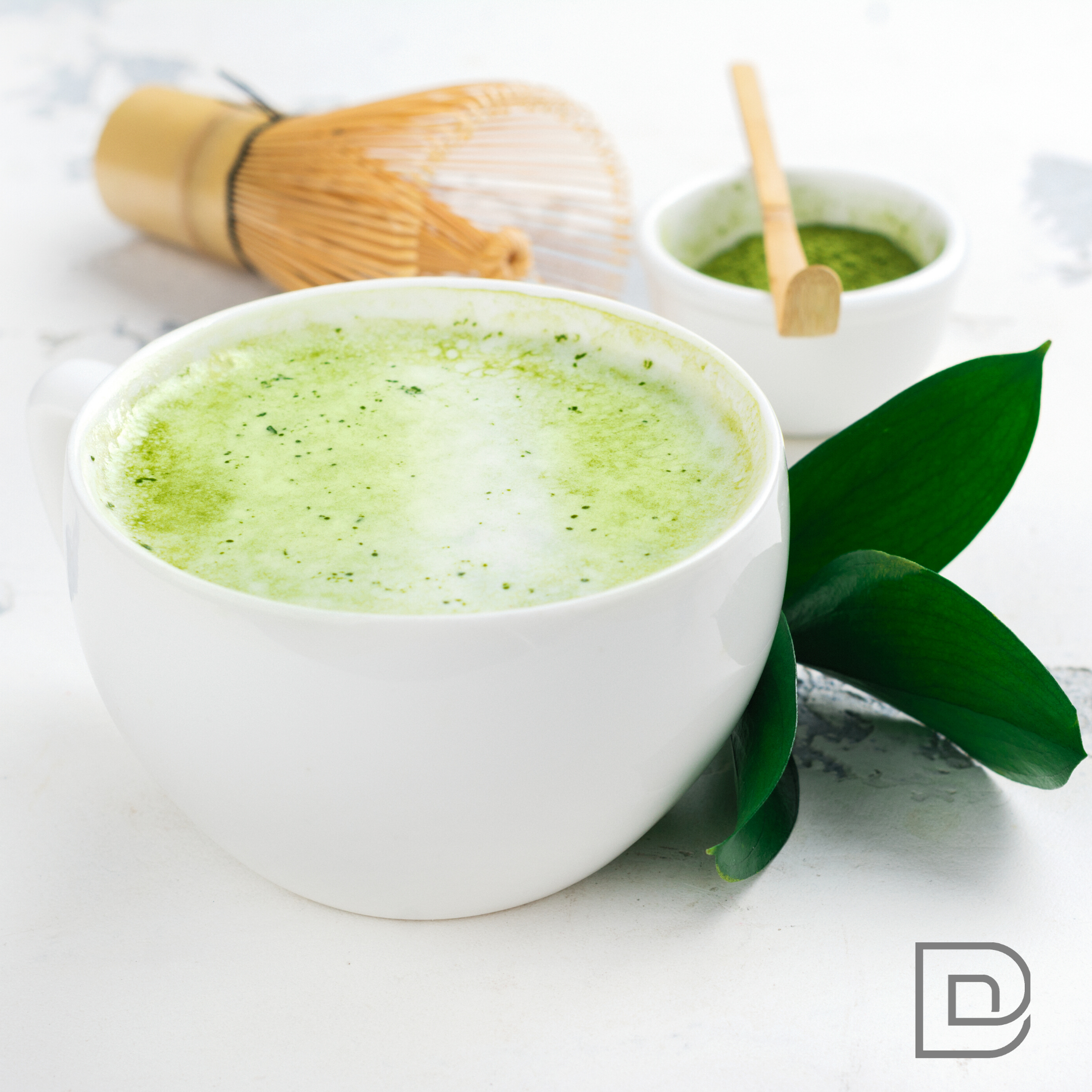What Is Matcha?
It’s a form of green tea that’s been enjoyed in China and Japan for hundreds of years. The leaves are made into a powder that’s far stronger than regular tea, so a little can go a long way.
How is it made?
About 2 weeks before harvest, farmers build structures around the plants to shade them, leaving them almost in the dark. It’s thought that this makes the leaves softer, sweeter, and brighter. After harvest, the tea leaves are quickly steamed, then dried and put into heated ovens for 20 minutes or so. Workers then remove stems, twigs, and other unneeded parts and grind the leaves into powder.
How does it taste?
Though it’s made from the same leaf, some people say matcha is sweeter and creamier than regular green tea. You may also notice a “grassiness” to the smell and taste, especially if you use a lot of the powder.
CAFFEINE PER 8 OZ SERVING
Brewed Coffee = 125 - 150 mg of caffeine
2 oz Espresso = 100 mg of caffeine
Matcha = 80 - 100 mg of caffeine
Black Tea = 50 - 75 mg of caffeine
Green Tea = 15 - 25 mg of caffeine
Caffeine Effects in Matcha Last Longer
After you drink a cup of matcha tea, caffeine doesn't reach your blood all at once. Instead, it's slowly released over time and its effects can last up to 8 hours.
This is because caffeine is bound to other chemicals, called catechins, and only after they are broken down and removed, caffeine can freely travel to the brain.
Catechins are specific antioxidants found in tea leaves but not in coffee beans, making this sustained release of caffeine a process unique to matcha green tea.
Increases Focus without Crashing:
Matcha can help keep you awake and focused and you don’t get jittery or crash like you might from having too much coffee.
Matcha contains a compound called L-theanine, which alters the effects of caffeine, promoting alertness and helping avoid the crash in energy levels that can follow coffee consumption.
L-theanine improves mental performance and alertness more than caffeine alone. By exerting a calming effect, it also counteracts the side effects of caffeine, like anxiety and nervousness.
Helps you Lose Weight:
Green tea is well known for its ability to enhance weight loss. In fact, studies show that it may help speed up metabolism to increase energy expenditure and boost fat burning.
Matcha Lattes found on many popular coffee shop menus are full of added sugar and typically not ceremonial grade matcha.
ADDITIONAL BENEFITS:
Studies have shown that Matcha may also reduce inflammation, lower blood pressure, lower cholesterol, defend against cancer
Studies have also demonstrated that L-theanine found in Matcha reduces the body’s response to stress.
How to Make Matcha Tea:
Whisk together 2 to 4 ounces of almost boiling water with 1 to 2 teaspoons of matcha powder. When it looks frothy and thoroughly mixed, it’s ready to drink. Add a bit more water if it’s too strong for your taste. Skip the latte, there is research showing that both milk proteins like casein and milk fat globules may bind tea antioxidants and make them less useful to us.
Be Adventurous:
Adding It to Your Smoothie or Protein Shake for an added kick
Sprinkle It on your Yogurt, Oatmeal or Granola
Mix it in a Salad Dressing for a different twist on Lemon Vinaigrette
REFERENCES:
https://www.healthline.com/nutrition/7-benefits-of-matcha-tea
https://www.webmd.com/food-recipes/ss/slideshow-all-about-matcha
https://www.runnersworld.com/nutrition-weight-loss/a28344312/what-is-matcha/




